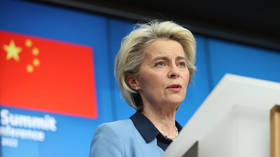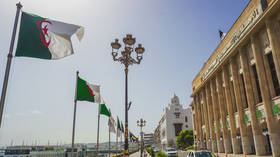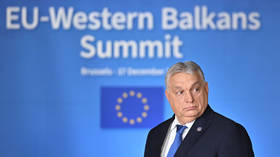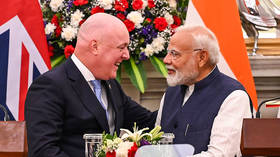EU compares dependency on Russia and China
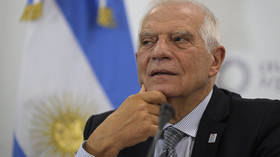
The European Union is highly dependent on China for supplies that play a crucial role in its “green transition strategy,” the bloc’s foreign policy chief, Josep Borrell, said on Monday, warning that this situation may make Europe vulnerable.
While China is a “key economic partner” for the EU and Brussels wants constructive cooperation with Beijing, it is also a “systemic rival” and this “rivalry and competition are… increasingly prominent” in bilateral relations, Borrell said.
The top diplomat said China “plays a crucial role in many supply chains” and accounts for 90% of the EU’s magnesium needs, 90% of its rare-earth requirements, and 80% of the solar panels used in the bloc.
“Our dependence on China for our green transition strategy is currently higher than our dependence on fossil fuels from Russia,” Borrell admitted.
The EU therefore must work on reducing its “excessive dependencies” by addressing its vulnerabilities and strengthening its resilience, he said.
The EU intends to become climate-neutral by 2050, while cutting net greenhouse emissions by at least 55% by 2030 compared to 1990 levels.
Borrell’s comments echo recent remarks by EU Commission President Ursula von der Leyen, who in October urged the bloc to reduce its reliance on Chinese technologies and raw materials, warning that it may find itself in the same crisis it faces over the dwindling supply of Russian fossil fuels due to sanctions over Ukraine.
Relations between the EU and China have been marred by a number of disagreements. Brussels has repeatedly accused China of human rights abuses, particularly against the Uighurs in Xinjiang province, an allegation Beijing has vehemently denied. Chinese officials have also protested against recent visits by several European lawmakers to Taiwan, the self-governed island which Beijing considers its sovereign territory.
According to a Bloomberg report last month, Washington urged the EU to tighten export restrictions in trade with China, while applying the same approach it relied on when sanctioning Russia over the Ukraine conflict.
